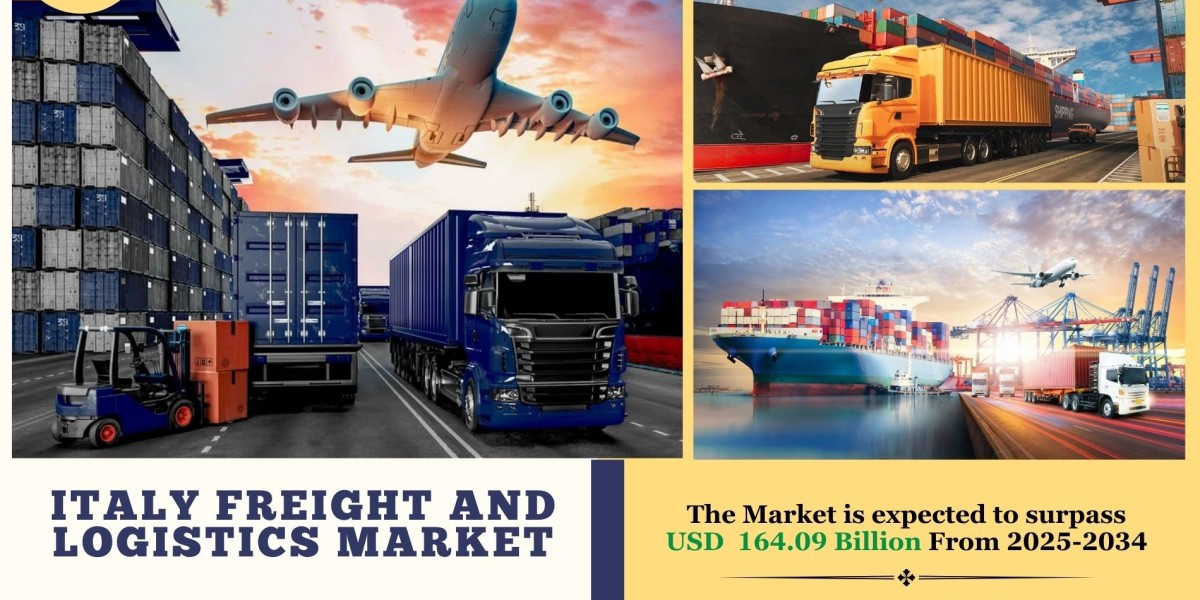Freight and logistics are the activities involved in moving, storing, and managing goods and commodities throughout the supply chain, from point of origin to final destination. Freight refers to the commodities or cargo being transported, which may include raw materials, finished products, or supplies, and is typically transported by air, sea, rail, or road. Logistics, on the other hand, refers to the comprehensive system of planning, implementing, and controlling the movement and storage of commodities. It comprises inventory management, packing, warehousing, order fulfillment, and transportation coordination. Effective freight and logistics management ensures that products are delivered on time while reducing costs, optimizing resources, and maintaining quality control throughout the distribution process. The logistics sector relies.
According to SPER market research, ‘Italy Freight and Logistics Market Size- By Logistics Function, By End User Industry- Regional Outlook, Competitive Strategies and Segment Forecast to 2034’ state that the Italy Freight and Logistics Market is predicted to reach 164.09 billion by 2034 with a CAGR of 4.2%.
Drivers:
The freight and logistics sector in Italy will grow due to a number of important factors. The National Recovery and Resilience Plan (NRRP), one of the major infrastructure development expenditures, aims to update and extend transportation networks, improving connectivity and efficiency nationwide. The need for effective logistics solutions has also grown as e-commerce has grown, especially in last-mile delivery services. In addition to supporting its logistics industry, Italy's advantageous geographic location as a European trade hub facilitates international trade and draws in foreign investment. All of these elements work together to support the optimistic view for the market.
Restraints:
The Italian freight and logistics market faces a number of issues that affect its efficiency and growth. As industry stakeholders have pointed out, one important issue is the lack of a coordinated strategic strategy for logistics development. The lack of a unified approach hampers the sector's ability to meet changing demands and compete in the global economy. Furthermore, the sector faces a serious labor shortage, notably among truck drivers, with over 22,000 positions unfilled, resulting in operational inefficiencies and delays. Another major issue is infrastructure constraints, such as inadequate rail freight networks and traffic congestion at vital transit areas like as the Brenner Pass. These difficulties result in higher expenses and worse competitiveness. Geopolitical conflicts also exacerbate instability by disrupting supply chains and influencing marine trade routes.
Northern Italy dominates the freight and logistics business thanks to its strategic location in Europe, well-developed infrastructure, and thriving manufacturing sector. Some significant market players are Arcese Group, DB Schenker, Deutsche Post DHL Group, DSV, FedEx, and others.
Request a Free Sample Report: https://www.sperresearch.com/report-store/italy-freight-and-logistics-market.aspx?sample=1
Italy Freight and Logistics Market Segmentation:
By Logistics Function: Based on the Service Logistics Function, Italy Freight and Logistics Market is segmented as; Courier, Express and Parcel, Freight Forwarding, Freight Transport, Warehousing and Storage.
By End User Industry: Based on the End User Industry, Italy Freight and Logistics Market is segmented as; Agriculture, Construction, Fishing and Forestry, Manufacturing, Mining and Quarrying, Oil and Gas, Wholesale and Retail Trade, Others.
By Region: This report also provides the data for key regional segments of Central Italy, East Italy, North Italy, South Italy, West Italy.
For More Information, refer to below link: –
Italy Freight and Logistics Market Growth
Related Reports:
Follow Us –
LinkedIn | Instagram | Facebook | Twitter
Contact Us:
Sara Lopes, Business Consultant — USA
SPER Market Research
enquiries@sperresearch.com
+1–347–460–2899









